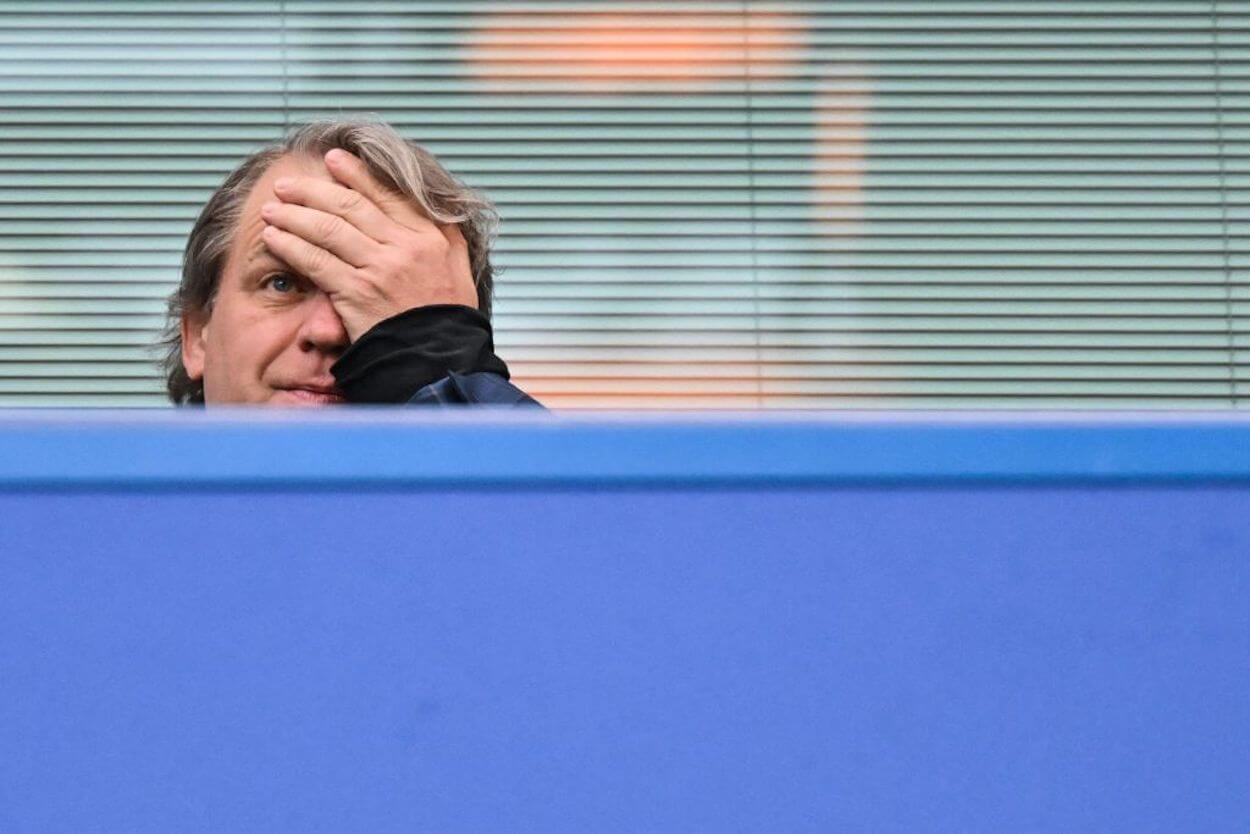Soccer
Chelsea Could Be Facing a Financial Problem, and Todd Boehly's Wealth Can't Solve It

As the cliche says, money makes the world go round. That's usually true in the world of soccer, where there's a pretty clear correlation between spending and on-field success. Chelsea, however, could be running into a problem that Todd Boehly's bankroll is powerless to fix.
Since the American arrived in West London, the Blues haven't had a problem opening their metaphorical checkbook and buying virtually any player with a passing interest in coming to the capital. And while there's room to debate the wisdom of those moves from a squad-building perspective, it seems like there could be another downside.
According to a recent report, the club could be up against Premier League financial rules regarding the amount of losses recorded over the past three years. If that's the case, Chelsea could have to sell some players ASAP or suffer the consequences.
The end of the Premier League season could put Chelsea in a financial bind
While European soccer doesn't feature a salary cap, there are some measures to try to keep club spending within reasonable bounds. And even though those are largely toothless — just ask any supporter about Financial Fair Play — Chelsea could still be running into a sticky situation.
As laid out by Martyn Ziegler in The Times, the West London club could be in trouble after the current season ends. Premier League rules state that a club can't lose more than £105 million over a three-year span. The Blues haven't crossed that line yet, but once the campaign ends, the ledger is going to turn over. The 2019-20 numbers, which boasted a £32.5 million profit, will drop off the balance sheet. They'll be replaced by the 2021-22 outlay, which was reported as a £121 million loss.
So, what does that mean? While nothing is official just yet, it seems like the club could have to sell some players ASAP.
“Kieran Maguire, a football finance author, said the club would be “dancing on the head of a pin” to try to avoid breaching the Premier League’s financial rules this time next year, which allow maximum losses of £105 million over a rolling three-year period,” Ziegler wrote. “Maguire said Chelsea might have to raise large sums from selling off players to avoid breaching the rules. Last week the Premier League charged Everton with breaching its profit and sustainability rules after three seasons of heavy financial losses.”
It's also worth noting that the Blues could also face scrutiny from UEFA for Financial Fair Play violations. As of now, though, Chelsea won't be playing European football next season, removing that threat.
And, to make things even more complicated, any potential sales would have to take place before June 30 to count in the appropriate financial year. While there's no guarantee that would even matter — Everton tried to do that by sending Richarlison to Spurs last summer and were still referred to an independent commission, so it's unclear how much that sale mattered — it still adds a bit more (potential) urgency to the timeline.
While Chelsea's large squad could make sales easier, the club is still in a less-than-advantageous position
Before going any further, I want to reiterate that we're dealing with hypotheticals here. Chelsea aren't in any trouble yet, and as far as we know, they could avoid any issue. The Times story and the quotes from Maguire used terms like “could be in trouble” and “might have to raise large sums,” so nothing is a forgone possibility, especially when COVID-19 allowances, sanctions, and amortization are on the table.
With that caveat out of the way, though, let's assume that Chelsea will have to sell in an effort to balance their books. That might not be as easy as it sounds.
If the sales need to raise a decent chunk of change, then we can afford to ignore academy players; no matter how talented they may be, you can't sell a player who isn't ready to make an impact for too large of a sum. That means the Blues will have to move bigger names.

But, as we've seen recently, selling unwanted players on massive wages isn't easy. Would a lesser team theoretically like someone like Kalidou Koulibaly or Pierre Emerick-Aubameyang, who both seem to be surplus to requirements at Stamford Bridge? Of course, but that's where salary becomes an issue. Using the Senegalese defender as an example, he's Chelsea's second-highest earner, taking home a reported £295,000 per week. It's unlikely that any club outside of Europe's elite would be willing to shoulder that burden, and if anyone did, the high wages would probably mean a reduced transfer fee.
And, even if we look at players who should be easier to sell, like Mason Mount and Conor Gallagher, there's another issue. If I, someone with no special knowledge of Premier League finances beyond reading a newspaper article, have reason to suspect that Todd Boehly needs to raise money ASAP, it's safe to assume that the other 19 clubs have a better idea of what's going on behind the scenes. That puts Chelsea in a position of weakness when it comes to negotiations. Making a sale is hard enough; doing it when the other party knows you need to sell and do it by a certain date is almost impossible.
Again, this is all hypothetical, and there are a lot of unknowns. Maybe there's some accounting with COVID-19 and the sanctions leveled against the club at the end of Roman Abramovich's time in charge that will allow Chelsea a bit of extra leeway. Maybe Chelsea know the magic number is actually manageable and believe they can easily reach that with a couple of straightforward sales.
If the suspicious are correct, though, the West London club could be facing a sticky situation in the coming months. And, in a rare twist for soccer, no amount of spending can solve it.











